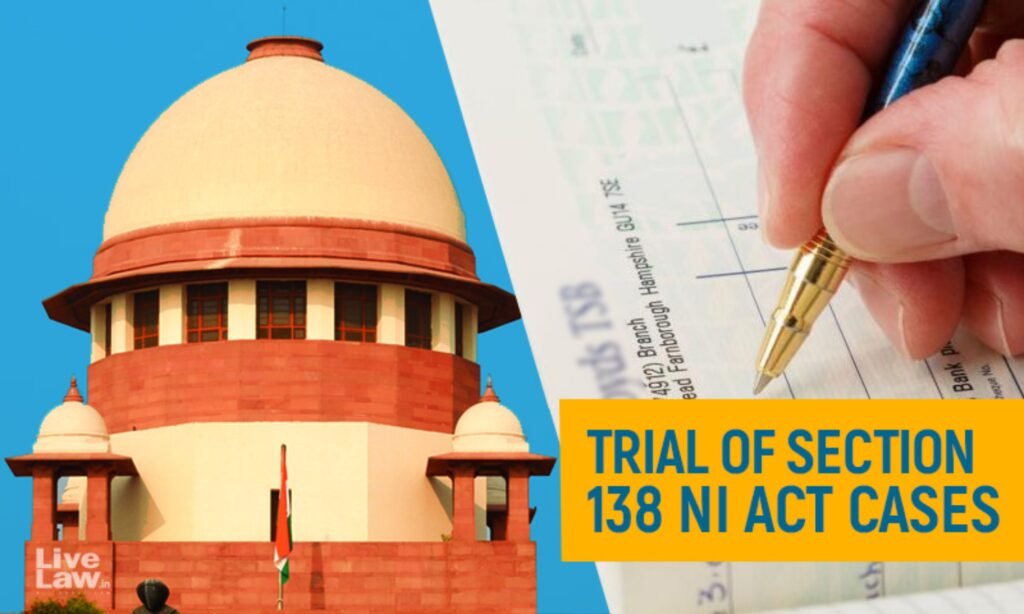Offenses Under Section 138 of the NI Act Cannot be Compounded if the Settlement Entered Between the Parties has Failed

Image Source: Live Law
When compounding of the offense under Section 138 of the NI Act was requested in a revision application, the Calcutta High Court ruled that because the petitioner hadn’t followed the terms of the settlement reached by the parties, the offense could not be compounded. As a result, the revision application was dismissed, and the order of the Learned Magistrate was upheld.
Brief records:
The current revision petition was filed against the decision and order of the Learned Sessions Judge in a criminal appeal, which upheld the Judicial Magistrate’s decision. The magistrate had ordered the payment of Rs. 5,80,000 to the opposing party in a complaint made under Section 138 of the Negotiable Instruments Act.
The actual situation was that the opposing party’s company conducted a financing business and used to lend money to its clients for various transportation-related activities. One of the clients was the petitioner. Before the opposing party, the petitioner requested a loan, and through a loan agreement, a loan of Rs. 6,50,000 was approved for the purchase of a vehicle. Subsequently, the petitioner’s monthly installment payments became irregular. On one occasion, the petitioner had written a check for the monthly payments, but it bounced due to a lack of funds. Following this, the opposing party sent a demand notice, but the petitioner refused to pay the amount of the dishonored check, leading to a complaint filed against them under Section 138 of the Negotiable Instruments Act.
The petitioner was found guilty by the Learned Judicial Magistrate and ordered to pay compensation to the opposing party within six months of the order date or face a six-month sentence of simple imprisonment. Dissatisfied with the ruling, the petitioner decided to file a criminal appeal.
According to the submission, the parties reached a settlement in which the petitioner was required to pay Rs. 3,90,000 toward the loan agreement. A portion of this amount was paid by the petitioner, but due to the pandemic and its impact, the petitioner was unable to pay the remaining balance.
Contentions of the petitioner:
The learned attorney for the petitioner argued that Section 147 of the NI Act does not explicitly state whether compounding is permitted or prohibited, or whether it can be done at the request of the complainant or with the court’s permission. However, the Supreme Court has noted in several rulings that the offense under Section 138 of the NI Act can be converted into an offense under Section 147 at any time. In light of this, it was argued that the contested judgment, conviction order, and sentence are flawed, suffer from intrinsic flaws, are unsupported by the law, and are likely to be overturned.
Observations of the court:
The petitioner argues that since the matter has been settled today, the necessary orders should be passed because, as the Hon’ble Court pointed out, the settlement of a certain amount, as contended by the petitioner, was reached after the judgment under review. The petitioner had not made the entire payment in that regard either, and the court noted that the sum reduced by the settlement is significantly less than the compensation amount.
The court then cited the cases of B.V. Seshaiah v. The State of Telangana & Anr. and B. Vamsi Krishna v. The State of Telangana & Anr. and distinguished them from the current case, in which the petitioner has admitted that they have not paid the full amount agreed upon with the opposing party. The court, therefore, concluded that the petitioner had failed to uphold the terms of the settlement and that the matter could not be further compounded as requested.
Decision of the court:
The Calcutta High Court denied the revisional plea and stated that the petitioner’s failure to settle precluded the compounding of the current case.
Team Profile

Latest entries
 Article30 September 2023Can RPF Personnel Be Treated As ‘Workman’ For Compensation Purposes? SC Decides
Article30 September 2023Can RPF Personnel Be Treated As ‘Workman’ For Compensation Purposes? SC Decides English30 September 2023High Court Expounds: The Statement of an Eyewitness Must Be Free from Blemish and Devoid of Any Ambiguity, Uncertainty, and Loopholes
English30 September 2023High Court Expounds: The Statement of an Eyewitness Must Be Free from Blemish and Devoid of Any Ambiguity, Uncertainty, and Loopholes English29 September 2023Radhasoami Satsang Bhawan: The High Court Directs to Maintain the Status Quo On Land in Agra until Oct 5
English29 September 2023Radhasoami Satsang Bhawan: The High Court Directs to Maintain the Status Quo On Land in Agra until Oct 5 English28 September 2023Denying Child’s Affection to Other Spouse Cruelty: High Court
English28 September 2023Denying Child’s Affection to Other Spouse Cruelty: High Court









